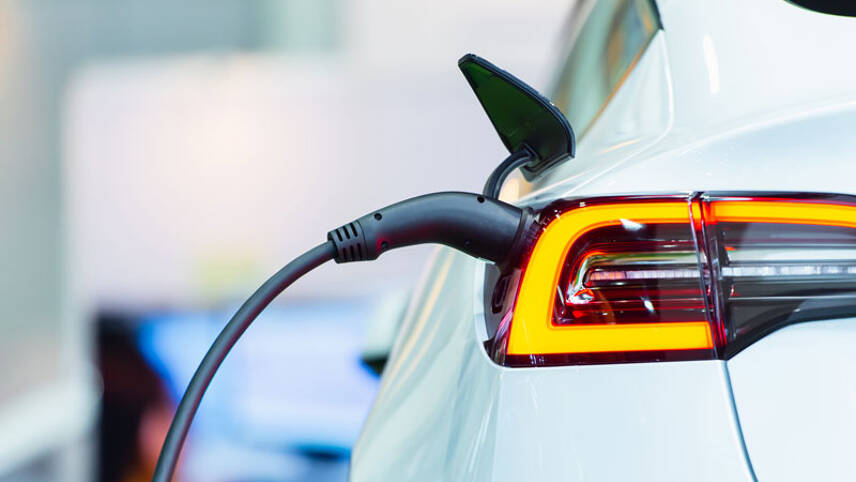Register for free and continue reading
Join our growing army of changemakers and get unlimited access to our premium content

This is according to Society of Motor Manufacturers and Traders (SMMT) data on new car registrations.
The UK’s new car market had its strongest year since the pandemic, with 1.903 million new cars hitting the roads in 2023—a 17.9% increase driven entirely by fleet investment.
Drivers heavily invested in low and zero-emission vehicles (ZEVs), resulting in a 2.2% reduction in the average CO2 emissions of new cars, down to 108.9 g/km.
Hybrid electric vehicles (HEVs) grew by 27.1% and secured a 12.6% market share. Plug-in hybrids (PHEVs) also had a strong year, with registrations up by 39.3%, representing 7.4% of the market.
SMMT’s chief executive Mike Hawes said: “With vehicle supply challenges fading, the new car market is building back with the best year since the pandemic.
“Energised by fleet investment, particularly in the latest EVs, the challenge for 2024 is to deliver a green recovery.”
In 2023, the UK’s new car market saw a surge in BEV uptake, reaching 314,687 new registrations—an increase of nearly 50,000 units, marking a record volume surpassing the combined numbers from 2020 and 2021.
However, there was a 34.2% decline in BEV volumes in the final month of the year due to circumstances in December 2022 when numerous orders were fulfilled. Regulatory uncertainties, including the last-minute UK-EU Rules of Origin deal affecting EV tariffs, contributed to market volatility, according to the SMMT.
Fleet investment drives BEV growth
BEVs accounted for one in every six new cars registered in 2023, mainly by business and fleet buyers attracted by tax incentives. Private buyers opted for BEVs at a rate of one in eleven, indicating a preference discrepancy.
Since discontinuing the Plug-in Car Grant in June 2022, the UK lacks consumer BEV purchase incentives but mandates minimum targets for new ZEV registrations, aligning with emission reduction goals.
The industry urges the Government to temporarily halve VAT on new BEVs for three years to support private buyers, aligning their support with that of business buyers. This move aims to boost the volume of zero-emission vehicles delivered by manufacturers.
The data highlights that the BEV uptake has surged nearly 20-fold over five years, generating substantial VAT revenue for the Treasury.
According to the SMMT, halving VAT could empower consumers with an additional £7.7bn in BEV purchasing power until 2026, potentially leading to 1.9 million new EVs on UK roads by then.
Hawes added: “Government has challenged the UK automotive sector with the world’s boldest transition timeline and is investing to ensure we are a major maker of EVs. It must now help all drivers buy into this future, with consumer incentives that will make the UK the leading European market for ZEVs.”
Looking to 2024, the market outlook forecasts 1.97 million new car units, with an anticipated 22.3% market share for BEVs, totalling 439,000 units. The forthcoming quarterly revised outlook, expected in February, will provide further insights into the automotive industry’s evolving landscape.
Challenges in EV charging infrastructure
As EV sales maintain an upward trajectory, recent findings from the RAC indicate that the Government is falling short of its goal to install six or more rapid or ultra-rapid EV chargers at every motorway service area in England by the close of 2023.
According to the RAC’s analysis on Zapmap, only 46 out of the 119 reviewed motorway services (39%) currently meet the target for having the required number of chargers, each with a capacity above 50kW.
The UK’s BEV fleet was anticipated to surpass the 1 million milestone by the conclusion of 2023.
British Gas’ EV director for net-zero ventures Kim Royds: “A record number of EV’s on the road is a feather in the cap when it comes to accelerating the UK’s transition to net-zero, but there is more to be done.
“To ensure the transition to EVs is as smooth as possible, it’s important we rapidly build the country’s network of charging infrastructure. Access to publicly available fast charging points and expanding roadside charging infrastructure will be vital to ensure no one is excluded from EV ownership.”


Please login or Register to leave a comment.